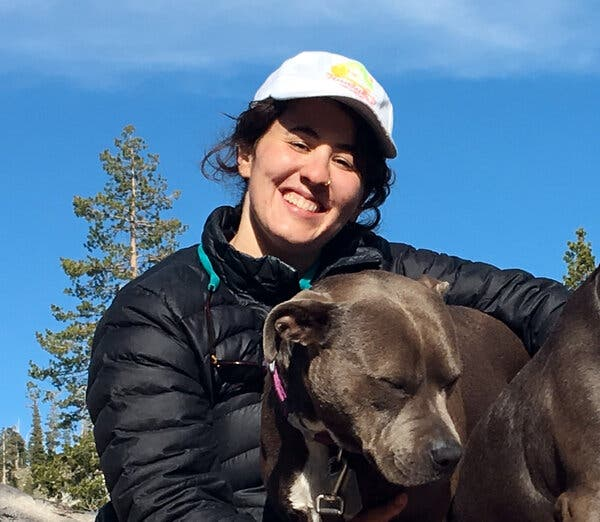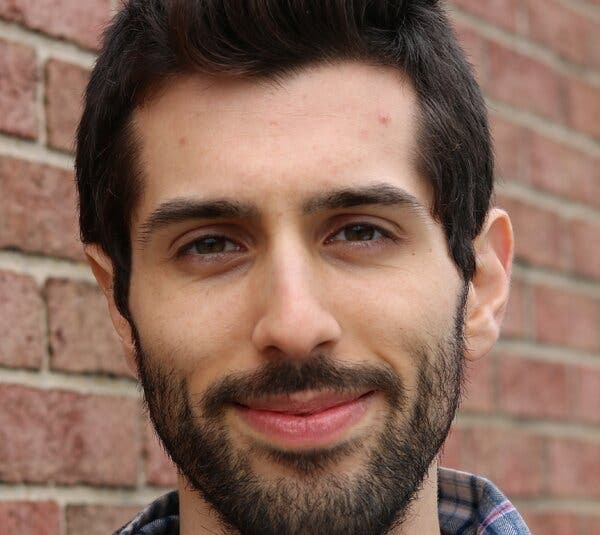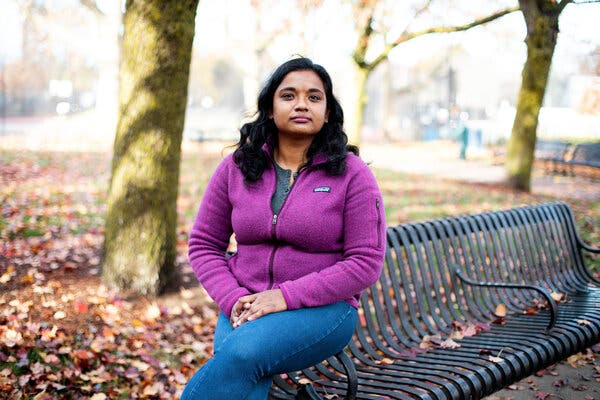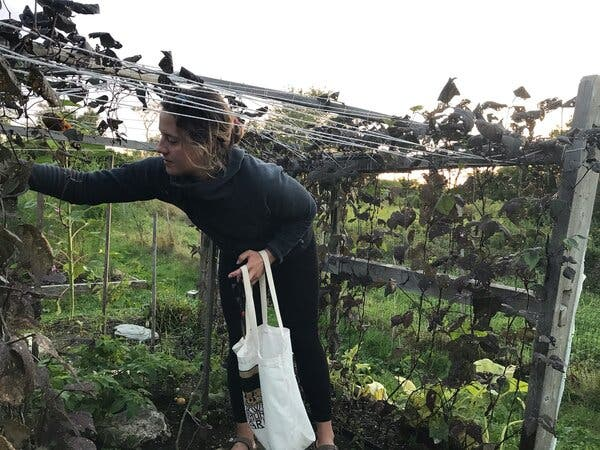
The well-done New York Times “Silver-Spoon Socialists” article, which appears at the end of this suggestion for a longer-term program which will, I believe, result in benefit for all involved and the nation as a whole, The article is an interview with those who are currently or prospectively the heirs of vast fortunes. The individuals interviewed are committed to using their wealth for what they believe to be social benefit, rather than the enhancement of their wealth.
One of the areas of interest to the interviewees is improving the fund-raising capabilities of companies to be owned and managed by those coming from the economically disadvantaged segment of the population. This is, of course, a commendable objective.
However, one of the problems is that children from economically poor families is that they are very aware of their personal limitations relative to children coming from better economic backgrounds. Therefore, they do not think of themselves as having the potential of being future business owners. Programs such as Junior Achievement and continuing to most business schools prepare students to be better employees, not business founders or owners. The training and role of the CEO of a company is different than that of a business founder and the program I am proposing is “Starting and Owning a Business” (SOB).
I believe that SOB programs should begin in classes in early elementary school and continue through high school. The lemonade stand can be expanded to other businesses meeting the needs of a customer base. The complexity of the business can increase to meet the needs of market segments. The SOB courses can be for both profit and non-profit businesses. The business founding skills include; identifying the customer need and benefit, determining the assets required to produce that necessary, recruiting, managing and training personnel and of financing the founding and operation of the business. The sills needed to successfully be in the lemonade stand business or manufacturing or software businesses are very similar and can be taught at early ages.
Those wishing to achieve the power coming from creating a business will need to have a belief that they can be successful and one of the benefits of SOB is the developing of student confidence in themselves.
It’s the new and relatively smaller businesses which create the new jobs and other community benefit. Larger companies usually want to increase revenues and units of production using fewer employees.
All involved in the creation of SOB courses and the society would benefit, not just the SOB students. It is truly a win/win situation and hopefully one which could attract the sponsorship of one or more of the so very fortunate heirs.
Arthur Lipper, Chairman
British Far East Holdings Ltd.
chairman@REXRoyalties.com
+1 858 793 7100
©Copyright 2020 British Far East Holdings Ltd. All rights reserved.
The Rich Kids Who Want to Tear Down Capitalism
Socialist-minded millennial heirs are trying to live their values by getting rid of their money.
Credit…Photo illustration by Jesse Untracht-Oakner for The New York Times
By Zoë Beery Nov. 27, 2020
Lately, Sam Jacobs has been having a lot of conversations with his family’s lawyers. He’s trying to gain access to more of his $30 million trust fund. At 25, he’s hit the age when many heirs can blow their money on harebrained businesses or a stable of sports cars. He doesn’t want to do that, but by wealth management standards, his plan is just as bad. He wants to give it all away.
“I want to build a world where someone like me, a young person who controls tens of millions of dollars, is impossible,” he said.
A socialist since college, Mr. Jacobs sees his family’s “extreme, plutocratic wealth” as both a moral and economic failure. He wants to put his inheritance toward ending capitalism, and by that he means using his money to undo systems that accumulate money for those at the top, and that have played a large role in widening economic and racial inequality.
Millennials will be the recipients of the largest generational shift of assets in American history — the Great Wealth Transfer, as finance types call it. Tens of trillions of dollars are expected to pass between generations in just the next decade.
And that money, like all wealth in the United States, is extremely concentrated in the upper brackets. Mr. Jacobs, whose grandfather was a founder of Qualcomm, expects to receive up to $100 million over the course of his lifetime.
Most of his fellow millennials, however, are receiving a rotten inheritance — debt, dim job prospects and a figment of a social safety net. The youngest of them were 15 in 2011 when Occupy Wall Street drew a line between the have-a-lots and everyone else; the oldest, if they were lucky, were working in a post-recession economy even before the current recession. Class and inequality have been part of the political conversation for most of their adult live
In their time, the ever-widening gulf between the rich and poor has pushed left-wing politics back into the American political mainstream. President-elect Joseph R. Biden Jr. trailed Senator Bernie Sanders, the socialist candidate, by 20 points among millennial voters in this year’s Democratic presidential primary. And over the last six years, millennials have taken the Democratic Socialists of America from a fringe organization with an average member age of 60 to a national force with chapters in every state and a membership of nearly 100,000, most of them under 35.
Mr. Jacobs, as both a trust-fund kid and an anticapitalist
Start , is in a rare position among leftists fighting against economic inequality. But he isn’t alone in trying to figure out, as he put it, “what it means to be with the 99 percent, when you’re the 1 percent.”
Challenging the System
“I was always taught that this is just the way the world is, that my family has wealth while others don’t, and that because of that, I need to give some of it away, but not necessarily question why it was there,” said Rachel Gelman, a 30-year-old in Oakland, Calif., who describes her politics as “anticapitalist, anti-imperialist and abolitionist.”
Her family always gave generously to liberal causes and civil society groups. Ms. Gelman supports groups devoted to ending inequality, including the Movement for Black Lives, the National Day Laborer Organizing Network and Critical Resistance, a leading prison abolition group.
“My money is mostly stocks, which means it comes from underpaying and undervaluing working-class people, and that’s impossible to disconnect from the economic legacies of Indigenous genocide and slavery,” Ms. Gelman said. “Once I realized that, I couldn’t imagine doing anything with my wealth besides redistribute it to these communities.”
 Rachel Gelman said that because her family’s wealth accumulated in stocks, “it comes from underpaying and undervaluing working-class people.”
Rachel Gelman said that because her family’s wealth accumulated in stocks, “it comes from underpaying and undervaluing working-class people.”
According to the consulting firm Accenture, the Silent Generation and baby boomers will gift their heirs up to $30 trillion by 2030, and up to $75 trillion by 2060. These fortunes began to amass decades ago — in some cases centuries. But the concentration of wealth became stratospheric starting in the 1970s, when neoliberalism became the financial sector’s guiding economic philosophy and companies began to obsessively pursue higher returns for shareholders.
“The wealth millennials are inheriting came from a mammoth redistribution away from the working masses, creating a super-rich tiny minority at the expense of a fleeting American dream that is now out of reach to most people,” said Richard D. Wolff, a Marxist and an emeritus economics professor at University of Massachusetts Amherst who has published 12 books about class and inequality.
THE INTERPRETER: Original insights, commentary and discussions on the major news stories of the week.
He said he has been professionally arguing against capitalism’s selling points since his teaching career began, in 1967, but that his millennial students “are more open to hearing that message than their parents ever were.”
Heirs whose wealth has come from a specific source sometimes use that history to guide their giving. Pierce Delahunt, a 32-year-old “socialist, anarchist, Marxist, communist or all of the above,” has a trust fund that was financed by their former stepfather’s outlet mall empire. (Mx. Delahunt takes nongendered pronouns.)
“When I think about outlet malls, I think about intersectional oppression,” Mx. Delahunt said. There’s the originally Indigenous land each mall was built on, plus the low wages paid to retail and food service workers, who are disproportionately people of color, and the carbon emissions of manufacturing and transporting the goods. With that on their mind, Mx. Delahunt gives away $10,000 a month, divided between 50 small organizations, most of which have an anticapitalist mission and in some way tackle the externalities of discount shopping.
 As the beneficiary of a trust fund financed by an outlet mall empire, Pierce Delahunt donates to organizations that are explicitly anticapitalist.
As the beneficiary of a trust fund financed by an outlet mall empire, Pierce Delahunt donates to organizations that are explicitly anticapitalist.
If money is power, then true wealth redistribution also means redistributing authority. Margi Dashevsky, who is 33 and lives in Alaska, gets guidance on her charitable giving from an advisory team of three women activists from Indigenous and Black power movements. “The happenstance of me being born into this wealth doesn’t mean I’m somehow omniscient about how it should be used,” she said. “It actually gives me a lot of blind spots.”
She also donates to social justice funds like Third Wave Fund, where grant-making is guided by the communities receiving funding, instead of being decided by a board of wealthy individuals. The latter sort of nonprofit, Ms. Dashevsky said, “comes from a place of assuming incompetence, putting up all these hurdles for activists and wasting their time on things like impact reporting. I want to flip that on its head by stepping back, trusting and listening.”
Of course, an individual act of wealth redistribution does not, on its own, change a system. But these heirs see themselves as part of a bigger shift, and are dedicated to funding its momentum.
The Revolution Starts at the Dinner Table
Any leftist trying to shake off an inheritance will, at some point, find their way to Resource Generation; all of the heirs in this article did. The organization, founded in 1998, is a politicization machine for wealthy 18- to 35-year-olds.
The nonprofit offers programming that encourages members to see capitalism not as a market-based equalizer promising upward mobility, but as a damaging system predicated on, as Resource Generation puts it, “stolen land, stolen labor and stolen lives.” In go young people knotted by tension between their progressive values and their wealth; out come determined campaigners with a plan to redistribute.
Maria Myotte, the organization’s communications director, said that membership grows each time the nation has a reckoning: Occupy Wall Street, the 2016 presidential election, and this year’s twin jolts of the Covid-19 pandemic and the uprising against anti-Black racism all attracted newbies. There are currently around 1,000 dues-paying members at local chapters around the U.S. According to the most recent internal survey, the wider Resource Generation network, which includes some nonmembers, collectively expects to control $22 billion in their lifetimes.
Heirs who want to redistribute their wealth said that, at first, they approached the task with the righteous fire of revolutionaries, castigating family members for their coziness with privilege. “There were many angry conversations around the dinner table where I was an impatient, arrogant brat,” said Sam Vinal, a 34-year-old in Los Angeles. But many have found that they can be more persuasive when they treat these conversations like friendly political canvassing.
When Mr. Vinal’s mother wanted to start a family foundation, an arrangement typically focused on a single charitable issue, Mr. Vinal saw an opportunity to instead create a vehicle for more comprehensive change. He set up conversations with leaders of various social movements to convince his mother to change the mission. “That was a light bulb moment for my mom, to hear directly from the front lines,” he said.
Since its creation in 2017, the foundation has supported radical organizations, with guidance from a group of activists. Mr. Vinal spends much of his time organizing other young people with family foundations to take theirs in this direction.
“I try to understand where people are coming from, the bubbles of race and class we get stuck in, so that I can help them be more imaginative about where we can go beyond capitalism,” he said.
Building the ‘Solidarity Economy’
The racial wealth gap means that heirs who want to redistribute their wealth are overwhelmingly white. People of color who are members of Resource Generation, for instance, tend to have access to less overall wealth, or will not inherit until later in life. The wealthiest are transracial adoptees or those who have a white parent. This makes the approach to redistribution a little more complicated.

“The money I’m living on was made from exploiting people that look like me, so I see my giving as reparations,” Elizabeth Baldwin said.Credit…Kayana Szymczak for The New York Times
“The narrative of giving away everything feels like it’s being framed by white inheritors,” said Elizabeth Baldwin, a 34-year-old democratic socialist in Cambridge, Mass., who was adopted from India by a white family when she was a baby. Heirs in her position, she said, must decide whether to redistribute to their own communities or others’, and what it means to give up economic privilege when they don’t have the kind of safety net that comes with being white. She plans to keep enough of her inheritance to buy an apartment and raise a family, enjoying the sort of pleasant middle-class existence denied to many people of color in the United States.
Because her adoptive family’s wealth originated in land ownership and slavery, she donates to anti-racist groups and will soon begin making low-interest loans to Black-owned businesses. “The money I’m living on was made from exploiting people that look like me, so I see my giving as reparations,” she said.
Ms. Baldwin has long-term relationships with Grassroots International and Thousand Currents, philanthropy networks working in many postcolonial countries, including India, whose impoverishment she sees as a symptom of Western capitalism. It is sometimes “strange,” she admitted, to be making reparations to her own people. “But no one else in my family talks about where this money came from, and I feel like I have to do it,” she said.
There’s another hitch: Because the stock market is both an engine of American capitalism and responsible in many cases for heirs’ massive individual wealth, few want anything to do with it.
“I get rich because other people aren’t getting rich, and I don’t want to keep making more wealth off investments in things like Coca-Cola and Exxon-Mobil,” said Ms. Baldwin. “I would rather put my money into a community that has been denied economic resources and disrupt the system.”
She is doing this by investing in what she and her peers call the “solidarity economy.”

“At some point, these numbers on a screen are imaginary,” Emma Thomas said. “But what’s not imaginary is whether you have shelter, food and a community.”
In short, this means using their money to support more equitable economic infrastructures. This includes investing in or donating to credit unions, worker-owned businesses, community land trusts, and nonprofits aiming to maximize quality of life through democratic decision making, instead of maximizing profits through competition. Emma Thomas, a 29-year-old democratic socialist who is also taking her money out of the stock market, described what she’s now investing in as “an economy that is about exchange and taking care of needs, that is cooperative and sustainable, and that doesn’t demand unfettered growth.”
This summer, she was part of a team that organized about 250 people to support the Black Land and Power Project, moving money from asset portfolios to 10 Black-run land sites across the U.S. (Because of the nation’s history of economic racism, many solidarity economy projects include a racial justice element.)
To Ms. Thomas, the prospect of contributing to a solidarity economy is a refreshingly tangible expression of her values, compared to the abstraction of accumulating portfolio returns. “At some point, these numbers on a screen are imaginary,” she said. “But what’s not imaginary is whether you have shelter, food and a community. Those are true returns.”
A version of this article appears in print on Nov. 29, 2020, Section ST, Page 1 of the New York edition
Blog Management: Viktor Filiba
termic.publishing@gmail.com
